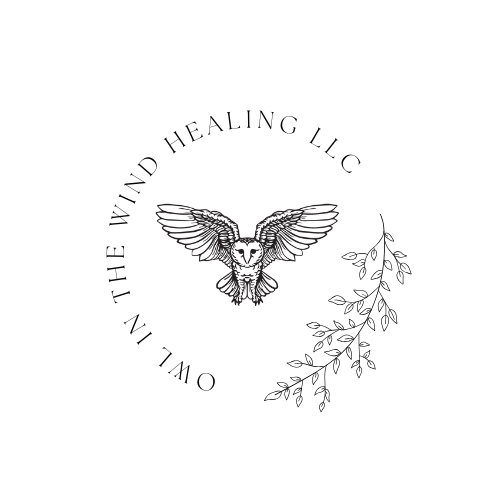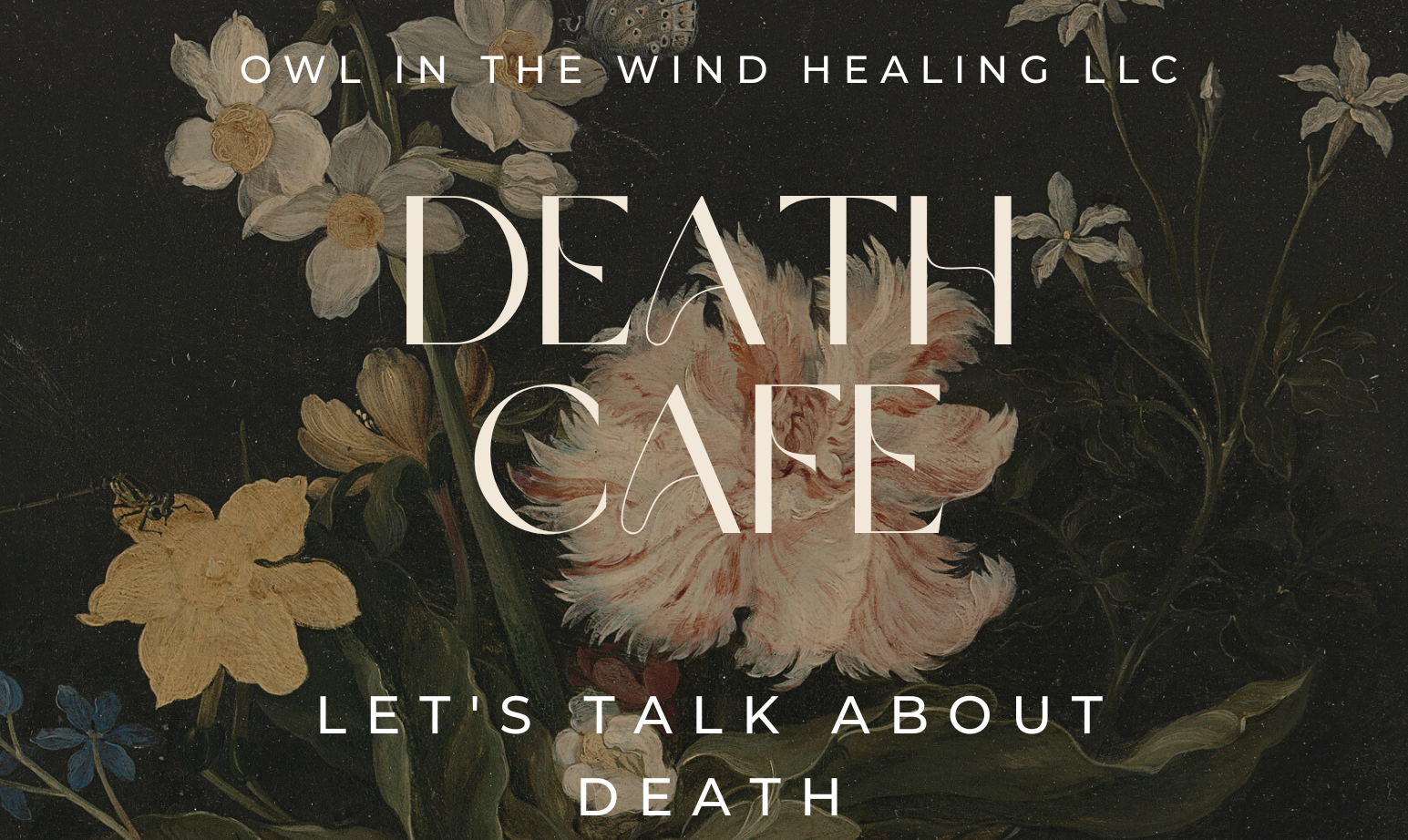Dying and Being “Dead” Well
I recently watched a video (which I’ll post the link below), and it spoke about being with a dead body. Not just any dead body, but your loved one post death. There is nothing out there that says you HAVE to call the funeral home immediately when they have passed. You have time. You can take this time to do any sort of ritual you feel called to do. Rituals such as washing the body, anointing it, praying, smudging, dressing, or simply holding their hand and talking. This is your time.
As it was mentioned, people have been taking care of their dead for tens of thousands of years. It is NORMAL to want to be with them when they have passed. To be the one that prepares them for burial. This is sacred. This is special. This is a gift. If you have this opportunity, and not many people do, take it. Even though the spirit has left their physical body, it is still a time to honor and show respect if you are comfortable in doing so.
If you have about 11 minutes of spare time, check out the video below with speaker Caitlin Doughty.
Caitlin Doughty | Why You Should Spend Time With A Dead Body - End Well (endwellproject.org)
Thanatology Certificate
Well, I am going to start my Thanatology Certificate program next month, and I’m pretty excited about it. I will have to give an update on the courses if anyone is interested in possibly going that route themselves. Below mentions the MS in Thanatology program, but as I mentioned, I will be doing the certificate program through this university.
An Academic Discipline That Examines Death and Its Impact
Thanatology is a scientific discipline that examines death from many perspectives, including physical, ethical, spiritual, medical, sociological, and psychological. It emerged out of the “death awareness movement” that started in the 1950s in the United States and the United Kingdom. Before this time, death education happened within families and communities, because most people died at home. Since World War II, dying and death have been more remote.
In the 21st Century only 20% of Americans die at home, while 60% die in hospitals and 20% die in nursing homes. Families have limited opportunities to care for the dying, or to be present at the death of someone they love. It has become challenging to pass on family and community values and customs related to mourning the dead.
The goal of the founders of the death awareness movement was to improve death education in families and communities. In doing so, they recognized it was important to establish death education – or thanatology – as an academic discipline.
Students of thanatology get a broad-based education on the topic of death, grief, and loss. Marian University’s MS in Thanatology program includes coursework such as:
Foundations of Thanatology
Bereavement Theory and Practice
Cultural Perspectives in Thanatology
Applied Ethics and the End of Life
Death in the Lives of Children and Teens
Complicated Grief
Traumatology
Understanding Suicide
Those who work in thanatology hold jobs in a wide variety of organizations. They include hospitals, hospices, funeral homes, faith communities, and non-profit organizations. Some focus on working with specific groups, including children, parents, military personnel, and veterans.
Is a Thanatologist a Grief Counselor?
It’s important not to think of “thanatologist” as synonymous with “clinical grief counselor.” Some clinicians specialize in grief therapy but becoming a grief counselor or therapist requires a degree that prepares a graduate for clinical licensure. Grief counselors and therapists need to know the techniques of clinical psychology, but they also need a good education in thanatology.
Grief counseling or therapy is not the primary job destination for thanatologists. Only 3% to 7% of grieving individuals require some sort of clinical care because their grief has triggered a more serious response – usually related to a pre-existing mental health issue.
The Benefits of Thanatology
Death remains a taboo topic for many people. While it happens to everyone, most people simply do not want to think about it more than necessary. But those who study thanatology face the issue of death head-on, studying the impact of death on individuals, families, and communities.
Those who work directly in thanatology may spend time with those who are facing death due to a life-limiting or terminal disease. They may also work with family members of those who are dying, helping them process the loss. Still others engage primarily in bereavement support services.
Taking courses in thanatology can benefit other medical professionals, helping them do their job better. They include medical examiners, coroners, doctors, and nurses. Social scientists also benefit from thanatology courses to learn about rituals and customs used to honor those who have died.
References
Not Going As Anticipated…
It has been a while since I have put a blog on my site. I had sworn to myself that I was going to do it regularly. To put my thoughts down and if no one was to read them, then, well… that’s fine. But I didn’t. Tonight, I have my first Death Cafe of the year and I am a little apprehensive because time has slipped away from me with holidays, trips, other personal situations going on and I feel I have slacked in areas that I wanted to really start in.
I want to get my End-Of-Life journey off to a good start and to help those in need, but I just haven’t been able to get myself out there to let people know that I am here. I NEED to be here. I do have my own kids, my husband and others that are first priority in my life. But I will always be available if there is someone in those final moments not wanting to be alone.
I have to keep moving forward and eventually it will all come together.
The Positive Death Movement
I just wanted to share this link to an article I saw posted on the Association for Death Education and Counseling’s (ADEC) website. It is a volunteer End-of-Life Doula who talks about his experiences.
The Positive Death Movement Brings Comfort to the Dying and Their Families
Enjoy!
Warmest Regards,
Morgan
Death Cafe
At a Death Cafe people, often strangers, gather to eat cake, drink tea and discuss death.
Our objective is 'to increase awareness of death with a view to helping people make the most of their (finite) lives'.
A Death Cafe is a group directed discussion of death with no agenda, objectives or themes. It is a discussion group rather than a grief support or counselling session.
Our Death Cafes are always offered:
- On a not for profit basis
- In an accessible, respectful and confidential space
- With no intention of leading people to any conclusion, product or course of action
- Alongside refreshing drinks and nourishing food – and cake!
I completed my End-of-Life Doula training, and while taking it, I discovered Death Cafes. Death Cafes are discussions that are held worldwide about anything related to death. I will share a bit from the website www.deathcafe.com below on what a Death Cafe is.
What is Death Cafe?
At a Death Cafe people, often strangers, gather to eat cake, drink tea (or coffee!) and discuss death. Our objective is 'to increase awareness of death with a view to helping people make the most of their (finite) lives'.
A Death Cafe is a group directed discussion of death with no agenda, objectives or themes. It is a discussion group rather than a grief support or counselling session.
Our Death Cafes are always offered:
On a not for profit basis
In an accessible, respectful and confidential space
With no intention of leading people to any conclusion, product or course of action
Alongside refreshing drinks and nourishing food - and cake!
I have created a monthly Death Cafe meetup for the Upstate area. You can go to www.meetup.com to join my group and sign up for any events. Note Please click on the meetup link I posted above. It will take you directly to my meetup page for Death Cafes. If you do not live in this area, go to the www.deathcafe.com and find one near your location.
Warm Regards,Morgan
The Beginning
The Beginning
Yesterday, I took the first steps to train as an End-of-Life Doula (EOLD). I registered for my training through Lifespan Doulas and also “interviewed” with the lead for hospice volunteers at a local hospice in my area. I go to get my TB test done this week and start my background process.
It is somewhat daunting, but at the same time, there is no time like the present. There will never be the “right moment” or a time where I will have more free time to be able to pursue what I want to do. That seems to be just life. But there is one thing that I know, if I want something bad enough, I do not give up. I keep going. I plan to complete my training, volunteer at hospice and start to get this part of my business’s modality off the ground and help serve those who are entering into that next chapter of their life. Notice that I do not say, “final chapter.” I do not believe it is their final chapter, just the next one.
If you’ve read why I am in training to be an EOLD, you would know that I was with my mother during her passing in July 2022. I still feel that being able to be with her at that moment, along with my sisters and my dad, was our final gift and send off to her as she begins her next chapter. Though it isn’t something we can see or experience with her at this time, it is still happening, and I know she is with me in spirit and would want me to continue this process so I can help those who are transitioning out of this life, and help support and guide their family members as well.



